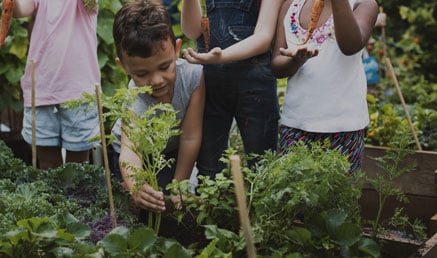
“It’s our polite nudge in the ribs to help you and your team stay organised and on task.”
This week’s subject is: Intentional Teaching
Element 1.2.1: Educators are deliberate, purposeful, and thoughtful in their decisions and actions.
Do educators practice intentional teaching and intentionality across all aspects of service delivery?
Educators foster children’s learning and development through play-based learning experiences, transitions and routines by using a range of intentional teaching practices and interactions to encourage children’s problem solving and thinking skills. With the use of open-ended questioning educators use teachable moments to challenge and expand children’s thoughts and support children to understand the rationale behind each learning experience, whether it be planned or spontaneous.
Ensure educators are reflecting on and documenting examples of intentional teaching that demonstrates their ability to support, challenge and extend on children’s thinking, learning and development. Document examples of when educators identify and utilise spontaneous “teachable moments” and use these to scaffold children’s knowledge.
Intentional educators:
-
- position resources and organise the environment in ways that support children’s learning and development, allowing them to explore, be challenged and extend their abilities
- recognise that learning occurs in social contexts and that interactions and communication are vitally important for learning
- use intentional teaching strategies to extend children’s play, including during spontaneous experiences
- are fully present and listen to children intently throughout their play and are mindful of opportunities to provide children the time and space to “be”
- use a variety of purposeful strategies including role modelling, demonstrating, open ended questioning, speculating, explaining and engaging in sustained shared conversations to extend children’s thinking and learning
- provide time, space and learning experiences that facilitate thoughtful and challenging conversations with children
- use their professional expertise and knowledge of individual children to plan programs that scaffold and extend each child’s learning
- move flexibly in and out of different roles and draw on different strategies as the context of children’s play changes
- plan and spontaneously implement strategies to promote learning and extend knowledge across all aspects of the program and service delivery
Resources:
Intentional Teaching: So many possibilities
Intentional Teaching: An academic’s perspective
Talking About Practice Series- NQS Professional Learning Program- Intentional Teaching
Finding the Balance: Play-based Learning and Intentional Teaching
Queensland Kindergarten Learning Guideline: Intentional Teaching Strategies
Within System7 go to Quality Area 1/Module 4 to submit self-assessment notes and if required, open a QIP issue if you identify any areas of improvement.
The Childcare Centre Desktop has a range of resources to assist services with reflection and documentation of intentional teaching and intentionality. These include Observation Record, Critical Reflection Template, Educational Program Policy and much more.
Resources, NQS Element, Regulation and System7 links:
Childcare Centre Desktop – Childcare Centre Desktop
National Quality Standard – QA 1- 1.2.1- Intentional Teaching
National Regulations – 73, 74, 155
System7 Module – QA 1/ Module 4
If you have any questions send us a note via the Contact page here!




